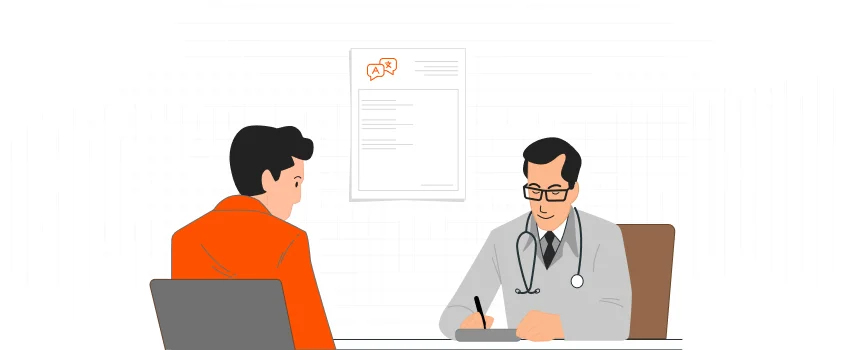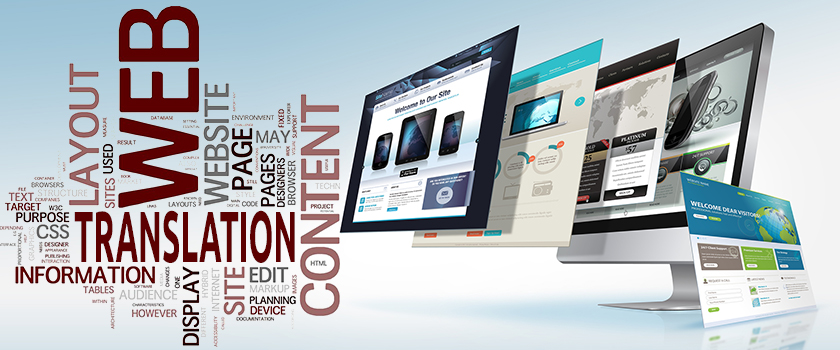All You Need to Know About Translation of Medical Text
By: Muhammad Abdullah Posted on Tue, 03-10-2023

2025 Offer Request a Quote Today and Grab a $50 Coupon for Free!
By: Muhammad Abdullah Posted on Tue, 03-10-2023

As the world advances towards more digitalization and modern means of technology, the need to establish communications across geographical boundaries is increasing. All types of industries are now striving to increase their global footprint. The medical industry is a highly specialized industry that requires accuracy, precision, and professionalism when it comes to translating medical texts.
Medical translators who are knowledgeable and experienced undertake the challenging task of translating medical texts. The reason why medical texts require so much precision is that any mistranslation or error can have life-threatening consequences for patients.
To ensure all medical content and texts are translated accurately, medical organizations and pharmaceutical companies need to use the services of expert medical translators adept at handling complex medical terminology.

Briefly defined, the translation of a medical text is the conversion of medical content from one language to another for the purpose of disseminating healthcare. The translation of medical text involves highly specialized and sensitive content, such as:
Some documents that require professional and accurate medical translations are:
Here are some reasons why the translation of this highly sensitive medical text is important:

The scientific and medical terminology is complicated and difficult to understand. For a layman, this medical terminology may be too difficult to understand, causing problems with medical treatments. If left untranslated, the complex medical terminology may cause the patient to take incorrect doses of medicines, raising serious health issues.
Some jurisdictions have enacted laws that focus on accurately translating medical texts for the purpose of appropriate medical treatments. Other than this, regulatory authorities in countries require professional medical translations in their national and local languages to ensure error-free healthcare practices. Consequently, legal issues may arise in cases of mistranslation of medical texts, causing hassles in medical practices and patient care.
Some content, especially that related to the medical field, requires accurate medical translation owing to the numerous medical specializations. These specializations have numerous acronyms and abbreviations related to patient healthcare, illnesses, and procedures. This means that medical texts of such a complex nature require an accurate and professional translation that can best be handled by professional medical translators.

Although translation for medical texts involves the translation procedure from one language to another just like any other text, extra precision is required considering the sensitive nature of the content involved. Here are some requirements that a medical translation expert must fulfill in order to deliver accurate and error-free translations of medical texts:
Surprising as it may seem, much of the complex medical terminology has its roots in the Latin language. The reason why Latin is considered the ‘mother tongue’ of medicine is that most of the medical advances were made in medieval times when Latin was the language of common use. Consequently, most medical terms, including the names of medicines and health conditions, are derived from Latin. A knowledge of Latin is essential to ensure correct and accurate medical translations are delivered promptly by medical translators. Failure to properly translate Latin terms can lead to mistranslations.
The translation of medical texts is not just about the conversion of one language to another. Rather, it requires an understanding of complex technical terms as well. Take the example of the complex treatment of cardiac arrest. A translator who is well-versed in technical knowledge related to the medical field will have no problem correctly translating the case files associated with the cardiac arrest treatment. In addition, numerous abbreviations related to the medical field require technical knowledge to properly translate them into other languages.
Similar to the legal sector, the medical sector in every nation is subject to regulatory bodies and rules that translators and other members of the medical community must abide by. These laws and regulations involve the adaptation and translation of medical documents in such a way that they are intelligible to the common man. Thus, a thorough knowledge of these regulations is essential to ensuring accurate medical translation. Moreover, a medical translator should also be aware of the regulations and laws of the target country for which the translation of medical text is required. Having this knowledge ensures no medical law or rule is breached in the process of translation.
An accurate understanding of the target audience is also paramount in ensuring the correct translation of medical texts. This is because certain types of medical translations are required for commercial purposes, while others are required for personal patient care. Take the example of translation for a drug description. This translation will be different in the case of commercial use and personal patient use. Likewise, a translator should also be aware of the audience he is translating for—are they children? Adults over 50 years? Hispanics? Etc.
At times, medical translation may not involve only the translation of the written text. A verbal interpretation of medical texts may be needed during a medical procedure. In such cases, it is best to hire expert medical interpreters who are fluent in both the source and target languages, in addition to having medical knowledge. This will ensure no error occurs in the process of medical translation.
The translation of medical text is a unique endeavor that is undertaken only with the help of expert and professional medical translators. The reason is simple—any discrepancy or error in medical translation could have serious and life-threatening consequences for the entire medical community and the patients as well. This is why it is imperative to hire expert and professional medical translators in order to ensure the error-free and accurate dissemination of medical information.

Language variations are quite noticeable every few miles, reflecting the unique identity of each region. Talking about India, the country
Read more
The term ‘woke’ has come from the black culture and now it has been removed from its origin after it
Read more
Mars Translation provides high quality and professional Certified French Translation Services all over the world. We have a team of
Read more
Mars Translation provides one of a kind professional Chinese Document translation services all over the world. All of MT’s translators
Read more
MarsTranslation provides one of a kind Chinese Legal Translation Services. We have a team of native Chinese linguist who specialize
Read more
Chinese Certified Translation services is one of the most asked for service at MarsTranslation. We believe in providing quality services
Read more
Mars Translation is one of the fastest growing companies in the translation industry. This is the reason why we pay
Read more
MarsTranslation has a huge team of website translation specialists in more than 230 languages. Our translators are constantly supported by
Read more
Mars Translation provides high quality and professional Certified Spanish Translation Services all over the world. We have a team of
Read more

